Sometimes you have to crash and burn before you learn to fly
You gotta burn your fear in that fire
Sometimes you have to lose your way before you find you heart
Then you go higher and higher and higher …
Then you fly …
Little by little I’m moving forward to COMPLETE my musical “The Golden Cage” after a reading last April where I got feedback from director Nell Balaban, composer/lyricist Paul Gordon (of Broadway’s “Jane Eyre” – also my childhood musical-writing pal) and Les Mis director John Caird. In the meantime, I worked with script coach Eric Webb and the New Opera and Musical Theater Initiative in Boston to develop the script.
All that helped develop the piece – but the big shift towards COMPLETING happened when I connected with my friend Larry Grogin, who offered to run accountability for me so I’d work on the show a minimum of 30 minutes a day (normally I would be pulling all-nighters before each reading or session).
That included menacing emails from Larry about impending doom if I didn’t send him the evidence each day and, more recently, a relentless “We’re making a SCHEDULE … right here, right NOW” session where I think I may have started crying. Several time. But now I have a schedule – and I’m ready for today’s rehersal.
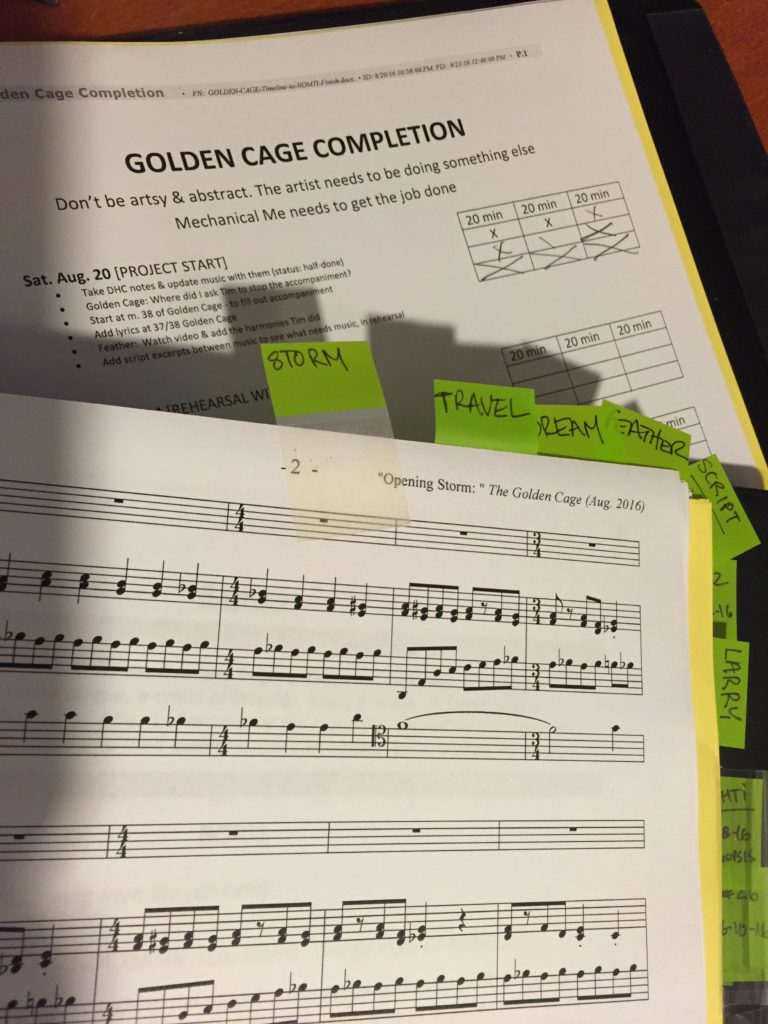 Moving towards completion also includes getting back on a weekly rehearsal schedule with pianist Tim Maurice to work through material in preparation for a reading September 17 for the New Opera and Musical Theater Initiative in Boston, and in October for the small team (Paul, Nell & me) probably in NYC.
Moving towards completion also includes getting back on a weekly rehearsal schedule with pianist Tim Maurice to work through material in preparation for a reading September 17 for the New Opera and Musical Theater Initiative in Boston, and in October for the small team (Paul, Nell & me) probably in NYC.
Here’s Tim and me last week, on a hot summer day, for the first time rehearsing at my new piano. There’s no air conditioning in that room, thus rehearsing in my sportsbra.
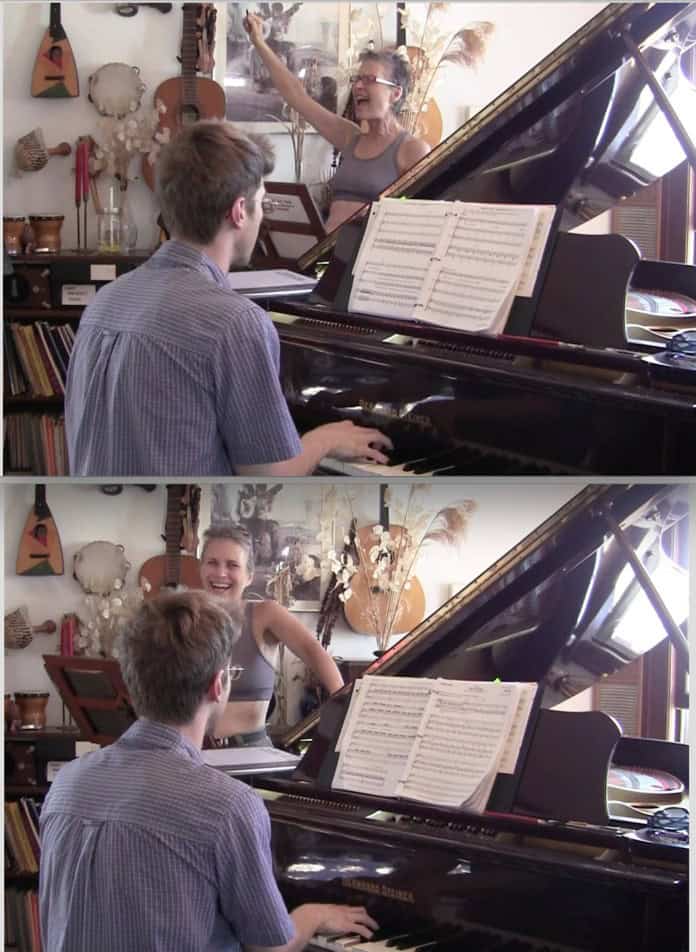 So what does it mean to “complete” something?
So what does it mean to “complete” something?
Here’s the thing … this show has already been produced. It’s BEEN DONE … but it’s not DONE. To be DONE with it, it needs to be ‘done enough’ that if I died tomorrow, the play could be produced and performed without me.
As a performing composer this is one of the biggest challenges of my life. When I’m performing my own work on stage, I’m constantly reinventing it in the moment of performance – and I write both my solo and orchestral shows to leave them open for that reinvention in-the-moment.
For my solo shows “complete” means that I can get on stage and know the material well enough to connect with the audience and feel totally present – so the magic of real-time connection, real-time invention happens through the music – so my audience knows they’re getting something that is truly alive and new in the moment.
This is what I’m most comfortable with – and what I’ve done all my life, building solo semi-improvised performances. It’s what I coach the people in my “Harness Your Muse” mentorship program on because it’s what I could do in my sleep. I can’t NOT do it.
But there are other levels of Completion
As more people are involved in a creative work, there are more levels of completion.
For my shows with symphony or chamber ensemble “complete” means that the scores and parts are ready in every way to be played. They’ve been proofed, they’re legible, they follow basic conventions of orchestral presentation so they’re easy for players to read – and I’ve sent them to the ensemble early enough that they – the conductor and performers – have time to do their preparation.
For example, here’s what the full score and parts for my concerto “Baroque Flamenco” look like:
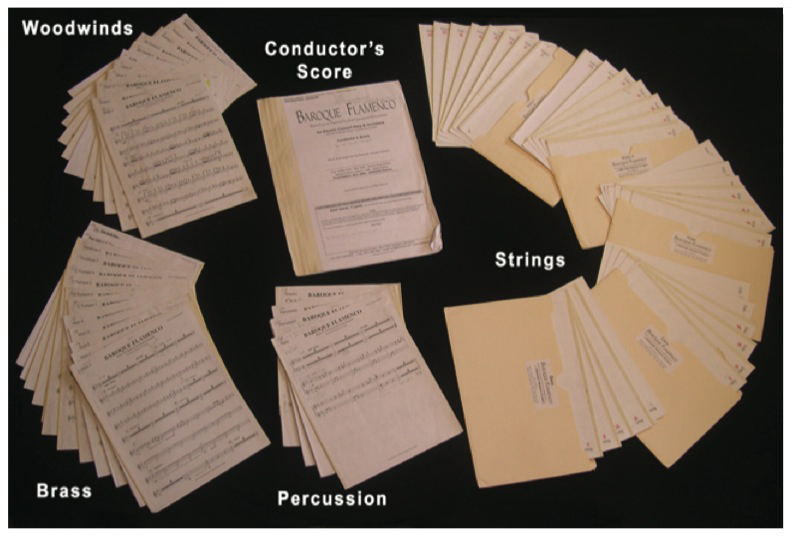 ‘READY’ means that I personally have a soloist’s cheat-sheet for each piece that lets me be present and focused in the rehearsals instead of searching through the scores for my cues if the conductor jumps around to rehearse different parts.
‘READY’ means that I personally have a soloist’s cheat-sheet for each piece that lets me be present and focused in the rehearsals instead of searching through the scores for my cues if the conductor jumps around to rehearse different parts.
But what if I won’t be there at all?
What if I’ll simply be sitting in the audience – or across the world from the performance? Then “DONE” means something completely different.
It means that if I died tomorrow, everything that needs to bring my vision across is in that manuscript and the support materials I provide – the audio files, video, composer or playwrite notes.
It’s not so much that I have to be DONE with it as it needs to be DONE with me. I have to project myself out of the life of the piece and give it over to its own life.
And that’s my big challenge right now with this work – to write myself out of the work completely – a piece I’ve been working on my whole creative life.
Did I mention that this is a deeply emotional experience? Funny I should save that ’til last. Being DONE means letting go of all the creative possibilities for the piece that I don’t choose. And that means a lot of crying. It means feeling like I’m losing things I love.
It’s the absolute opposite of my experience as a performing-composer – in which both myself and the works I play continue to develop together – sometimes in very dramatic ways over decades and decades, as if we were married and dancing together forever.
But now … with this piece … my challenge is to be able walk away and leave the piece on the dance floor ready to meet its new partners.
Yeah, that’s hard for me. Really hard. But that’s what I’m committed to. And if this is the kind of difficult challenge I’m asking the people I mentor to do, I have to be willing to do it myself.
How about you? What’s the heartache inside the triumph you seek? What’s the part it breaks your heart to leave behind?
And by the way … those lyrics at the beginning of this post? They’re not from the show. They’re from the show to ME.


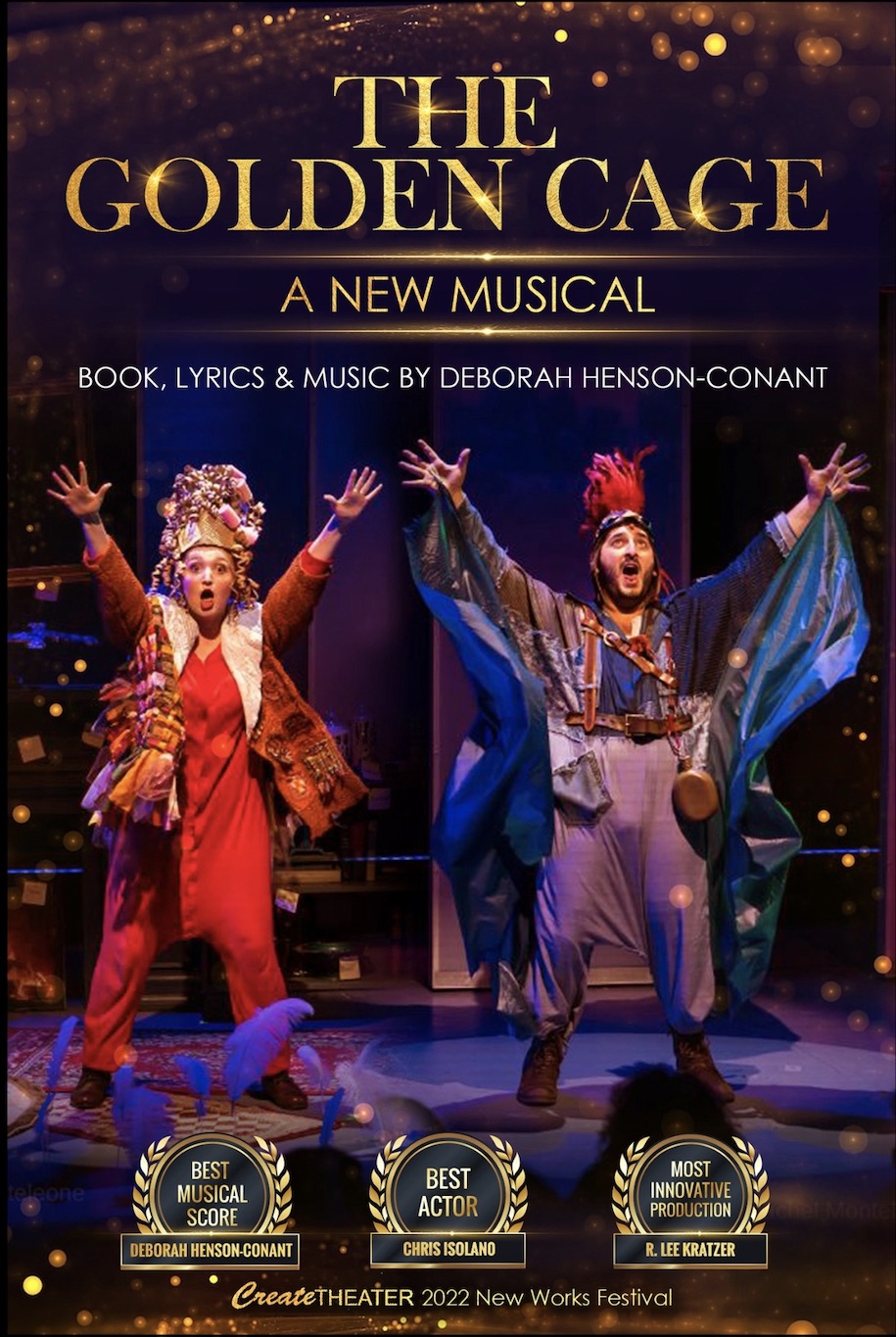
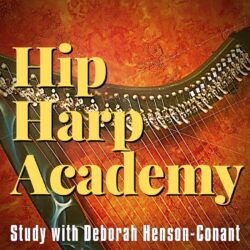

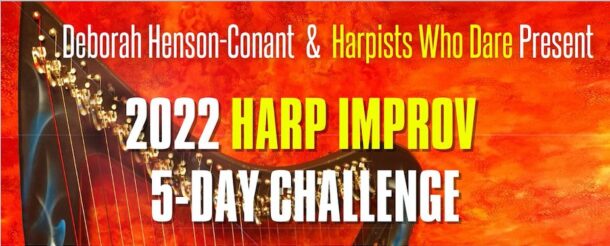
I’m something of a composer, myself, but I don’t think I’ve ever examined the process of completing a piece from the angle you’ve shown here. I assumed, all this time, my own struggle to finish a certain projects was more to do with my tendency to be a perfectionist — trying to answer in the technical instructions of the music every possible question a musician or performer might have. Now that I’ve read your entry, I have to admit it’s a lot more complicated than that… it *is* about loss, letting go.
For me the painful but ultimately triumphant thing is the loss of control. In order for my music to be something more than just some ideas of mine lying inert on a sheet of paper, I have to entrust it to the hands of musicians who will bring to it their own experiences and interpretations. They may come to rehearsal tired, frustrated or inattentive, possibly. They’ll look at my work, the instructions I painstakingly provided and they’ll have total freedom to choose — often in a split-second — whether they’ll heed my advice or take my idea and run with it down some other path.
Ach! But I need these people! I have to trust them… trust that they won’t let me down, be willing to step back and let them surprise me with something I didn’t realize was in my own work — something that resonated with them that I brushed right over.
Yes! Love this: “something that resonated with them that I brushed right over” and love that experience of someone else’s artistry revealing meaning and depth I didn’t know was there!
Its hard to complete because it means all those great possibilities that remain to be discovered might be over. Because I move on to something else; and then to come back and hear some new possibility. And then to realize that I may have to have a finite composition, even though there are these other good ideas.
To watch you let others change Baroque Flamenco into their own idea was a good lesson for me; I saw you do it, and I knew for me at least that would be hard, particularly after all the hard work. And then to see the many amazing derivations that were so different than the original. And to see that the piece as written remains monumental nevertheless.